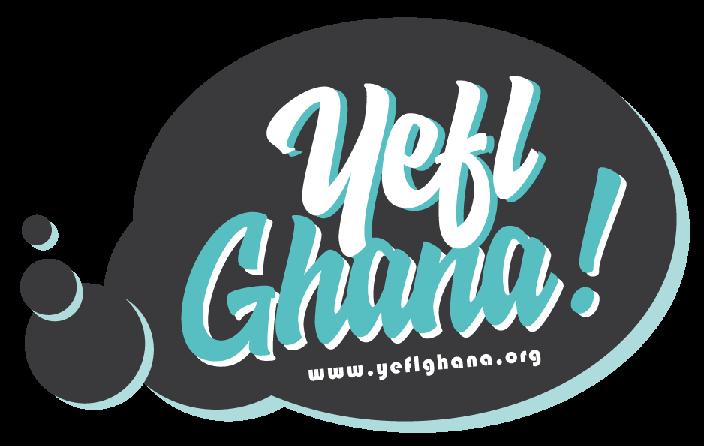
4 minute read
3.Target groups and key approaches
3.1 OUR CORE TARGET GROUP Youth according to the national youth policy of Ghana in line with the African Union (AU), are persons between the ages of 15 and 35. But for this strategy and statistical purposes of monitoring, evaluation and impact assessment, YEFL-GHANA primarily will work with existing youth groups as well as individuals with special focus on vulnerable and/or unemployed youth that have potential to influence public discourse, improve their wellbeing and can demonstrate their interest and commitment to engaging duty bearers and institutions in constructive dialogue.
Our secondary target are young people between the ages of 26 and 35 and children and adolescents who are between the ages of 10 – 19 according to the UN on one hand and children who are under 18 according to the UN convention on the rights of the child on the other .
Advertisement
3.2 YOUTH EMPOWERMENT KEY APPROACHES
Youth Empowerment GOAL
Overall, our empowerment process will result in a critical mass of young people who are
active citizens with leadership and networks demanding their rights and interest, creating enterprises and participating in decision–making processes.
The key areas of priority have been influenced by the three broad empowerment approaches of economic, social and political strategies employed by YEFL-GHANA to deliver our program/ projects.
SOCIAL EMPOWERMENT
With this concept the youth are empowered using, through a learning by doing approach, networking, peer to peer learning and youthled mobilization on issues. The target groups for social mobilization are literate and non-literate youth, who are mobilized and trained to strengthen their capacities and governance structure to advocate for community development and participate in decision making at various levels in the society within and beyond. Key to this approach is the Youth Center Concept (See section 4.1), that are platforms for youth organization and mobilization.
POLITICAL EMPOWERMENT
It has the objective of nurturing young people to have leadership capacity to take on leadership positions and participate in democratic processes at all levels. Furthermore, the youth are empowered to demand accountability from duty bearers as exhibiting young people’s civic responsibility to self and society are key in politically empowering youth.
ECONOMIC EMPOWERMENT
Our goal is to develop supportive, sustainable and successful rural social enterprises to promote a one-stop entrepreneurship program by building capacities, creating economic opportunities and creating an enabling environment to inspire youth in rural and underserved communities to startup businesses through the provisioning of entrepreneurial skills development, business mentoring and advisory, networking, and marketing support services.
Already, there exist some spaces that foster innovation and entrepreneurship in the country, but these spaces do not reach a large number
of rural-based youth as they are only established in urban communities.
With economic empowerment the objective is to facilitate the creation of self-employment among young people by igniting their entrepreneurial mindset, creating an enabling start-up environment and establishing linkages for the purposes of advocacy and to access and participate in existing economic opportunities. This will be done through entrepreneurial skills training, information sharing, establishing linkages to existing business support opportunities, networks and creating rural entrepreneurship hubs.
Evidence-based advocacy for favorable economic policies related to youth economic development is a key component for YEFL-GHANA and the youth and will be carried out in collaboration with relevant youth networks and key stakeholders.
3.3 YEFL GHANA’s THEORY OF CHANGE
The 3 key intervention areas are interlinked and utilised in YEFL Ghana’s projects and programs. They also guide our theory of change that focus on four main areas and outcomes under the 3 intervention areas.
The overall goal is:
EMPOWER YOUTH SOCIALLY, ECONOMICALLY AND POLITICALLY TO BE ACTIVE CITIZENS WHO DEMAND THEIR RIGHTS, CREATE JOBS AND ENGAGE IN DECISION-MAKING PROCESSES
The intended overall outcomes are:
1.
2.
3.
4. Youth advance their rights and interests at local, national and international level Youth have voice and space to engage duty bearers and address injustices Youth have capacity to start up businesses in an enabling environment Youth have formed strong networks and partnerships for collective social change
The Theory of Change is illustrated on page 11.
EMPOWER YOUTH SOCIALLY, ECONOMICALLY AND POLITICALLY TO BE ACTIVE CITIZENS WHO DEMAND THEIR RIGHTS, CREATE JOBS AND ENGAGE IN DECISION-MAKING PROCESSES
Support youth to develop their confidence and build and strenghten their skills in civic engagement, decision making, critical thinking and effective communication and advocacy
Support youth with communicative capacity to advocate for change, and be heard by both state and non-state actors
Support youth to start up their own businesses through entrepreneurship training and by establishing a supportive environment for startups and innovation Support youth to establish strong youth organizations that increase their opportunities to co-create, learn and act together to influence their communities
YOUTH POLITICAL ACTION AND ACCOUNTABILITY YOUTH SPEAK UP
Limited spaces for participation in decision-making Limited space and skills to speak up on issues
YOUTH ENTREPRENEURSHIP
Very high youth under - and unemployment
YOUTH ORGANIZING FOR CHANGE
Limited capacity to organize and mobilize




